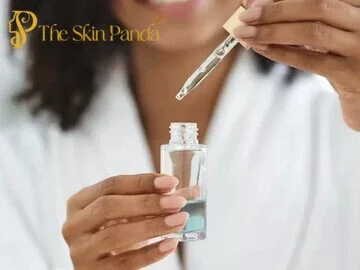Welcome to the world of skincare secrets! Delve into the transformative world of beauty as we unveil the mysteries of active ingredients in skin care. Ever wondered what makes your favorite products work wonders for your skin? Let’s explore the powerful active ingredients that can transform your skincare routine. Let’s get started!
In the quest for healthy, radiant skin, skincare enthusiasts and experts alike have long extolled the virtues of various products and routines.
Yet, at the heart of every effective skincare regimen lies a crucial factor: active ingredients. These potent components are the secret weapons that can transform your skin, addressing everything from fine lines and acne to dullness and pigmentation.
In this comprehensive guide, we will delve into the fascinating world of active ingredients in skincare. We’ll explore what active ingredients are, why they matter, and which ones you should be looking for in your products.
Whether you’re a skincare novice or a seasoned pro, understanding the role of active ingredients will empower you to make informed choices and craft a customized skincare routine that brings out the best in your skin. So, let’s embark on this journey to unlock the secrets of skincare’s unsung heroes!
What to Know About Active Ingredients in Skincare?
To appreciate the true essence of skincare, it’s essential to grasp the concept of active ingredients.
These powerful components are the driving force behind the efficacy of skincare products. Unlike inert fillers and carriers, active ingredients are the workhorses that directly influence your skin’s health and appearance.
In this section, we will explore what active ingredients are, how they differ from other components, and why they play a pivotal role in your skincare routine.
Definition of Active Ingredients in Skincare
Active ingredients, in the context of skincare, are biologically active compounds that have specific functions or benefits when applied to the skin.
They are the ingredients responsible for producing tangible results, such as improved hydration, reduced wrinkles, or faded hyperpigmentation.
Active ingredients are carefully chosen and formulated into skincare products to address various skin concerns and conditions.
How Active Ingredients Differ from Other Components
In a typical skincare product, you’ll find a mix of active and non-active (also known as inactive) ingredients.
Non-active ingredients include emollients, thickeners, preservatives, and fragrance components. While these non-active ingredients contribute to the product’s texture, stability, and scent, they do not provide the primary benefits you seek from skincare.
Active ingredients, on the other hand, are the star players. They are present in higher concentrations and are specifically selected for their ability to penetrate the skin’s surface and deliver the desired effects.
Whether it’s boosting collagen production, exfoliating dead skin cells, or providing protection against environmental damage, active ingredients are the driving force behind skincare’s transformative results.
Why Active Ingredients Are Crucial in Skincare
Active ingredients are the catalysts for change in your skin. They have the potential to:
1. Address Specific Concerns: Active ingredients are chosen based on their known abilities to target particular skin issues, whether it’s acne, fine lines, dark spots, or dryness.
2. Deliver Visible Results: These ingredients produce tangible improvements in your skin’s appearance, often more quickly and effectively than non-active components.
3. Support Skin Health: Beyond cosmetic benefits, active ingredients can help maintain the overall health and integrity of your skin, promoting long-term well-being.
In summary, active ingredients are the backbone of any effective skincare routine. They are the ingredients that have the scientific backing to make a real difference in the way your skin looks and feels.
Common Active Ingredients in Skincare

Now that we’ve established the importance of active ingredients in skincare, let’s dive into the list of some of the most widely recognized and celebrated active ingredients.
Each of these ingredients brings its unique set of benefits to the table, addressing various skin concerns and conditions.
Getting to know what these ingredients do and how they work can help you choose the right products for your skincare needs. Here’s a closer look at these skincare superheroes:
Vitamin C: The Radiance Booster
Among the many active ingredients in skincare, vitamin C stands out as a true superstar. This powerful antioxidant offers a myriad of benefits for your skin, making it a go-to choice for those seeking a brighter, more youthful complexion.
Vitamin C, also known as ascorbic acid, is a water-soluble vitamin naturally found in various fruits and vegetables. While it’s well-known for its role in supporting the immune system, vitamin C also plays a crucial role in skincare due to its potent antioxidant properties.
How Does Vitamin C Benefit the Skin?
1. Antioxidant Protection: Vitamin C is a formidable antioxidant that helps combat free radicals – unstable molecules that can damage skin cells and accelerate signs of aging. By neutralizing these free radicals, vitamin C protects the skin from environmental stressors like pollution and UV radiation.
2. Brightening and Even Skin Tone: One of vitamin C’s standout benefits is its ability to reduce hyperpigmentation and uneven skin tone. It inhibits the production of melanin, the pigment responsible for dark spots and discoloration, leading to a more radiant complexion.
3. Collagen Production: Vitamin C is essential for the synthesis of collagen, a structural protein that keeps the skin firm and youthful. By promoting collagen production, it can help diminish the appearance of fine lines and wrinkles.
4. Hydration and Moisture: Vitamin C helps improve the skin’s moisture retention capacity, resulting in a hydrated and supple complexion.
Vitamin E: The Skin’s Shield and Repairer
When it comes to skincare, vitamin E is a revered ingredient known for its protective and reparative qualities. This fat-soluble vitamin offers a range of benefits that contribute to healthier, more resilient skin.
Vitamin E, also called tocopherol, is a group of fat-soluble compounds with potent antioxidant properties.
It naturally occurs in various foods and is renowned for its ability to support overall health. In skincare, vitamin E plays a crucial role in maintaining skin’s well-being.
How Does Vitamin E Benefit the Skin?
1. Antioxidant Defense: Vitamin E is a formidable antioxidant that works alongside vitamin C to neutralize free radicals. This helps protect the skin from oxidative stress caused by environmental factors, including UV radiation and pollution.
2. Moisture Retention: Vitamin E has emollient properties, which means it helps lock in moisture and maintains the skin’s natural barrier function. This can be particularly beneficial for those with dry or dehydrated skin.
3. Wound Healing: Vitamin E has been found to aid in the repair of damaged skin. It can accelerate the healing process of minor wounds, cuts, and abrasions, reducing the risk of scarring.
4. Anti-Inflammatory: Vitamin E possesses anti-inflammatory properties, making it soothing for irritated or sensitive skin. It can help calm redness and reduce skin discomfort.
5. UV Protection: While not a replacement for sunscreen, vitamin E can provide an additional layer of protection against UV damage when applied in combination with sunscreen products.
Green Tea Extract
Green tea extract, derived from the leaves of Camellia sinensis, has gained significant popularity in the world of skincare for its impressive array of skin-loving properties. This natural ingredient is revered for its ability to calm, protect, and rejuvenate the skin.
Green tea extract is obtained from the unoxidized leaves of the Camellia sinensis plant. Unlike black or oolong tea, green tea leaves are minimally processed, preserving their abundance of bioactive compounds, including polyphenols, catechins, and antioxidants. These compounds make green tea extract a valuable asset in skincare.
How Does Green Tea Extract Benefit the Skin?
1. Antioxidant Powerhouse: Green tea extract is rich in antioxidants, most notably epigallocatechin gallate (EGCG), which helps neutralize free radicals. This antioxidant activity protects the skin from oxidative stress caused by UV radiation and environmental pollutants.
2, Anti-Inflammatory: Green tea has natural anti-inflammatory properties, making it ideal for soothing irritated or red skin. It can help alleviate conditions like rosacea and acne.
3. Anti-aging: The antioxidants in green tea extract help combat premature aging by preventing collagen breakdown and reducing the appearance of fine lines and wrinkles.
4. Oil Control: Green tea extract can help regulate sebum production, making it an excellent choice for those with oily or acne-prone skin.
5. Skin Brightening: Its ability to inhibit melanin production can lead to a more even skin tone and a reduction in the appearance of dark spots and hyperpigmentation.
6. Protection from UV Damage: Green tea extract can provide an added layer of sun protection when used alongside sunscreen, as it may help shield the skin from some of the harmful effects of UV rays.
Hyaluronic Acid

Hyaluronic acid, often abbreviated as HA, is a remarkable ingredient in skincare renowned for its exceptional hydrating properties. It’s a natural substance found in our bodies, with the highest concentration in our skin, joints, and eyes.
Hyaluronic acid is a molecule that belongs to the glycosaminoglycan family, a type of carbohydrate that attracts and retains water. It has a unique ability to hold up to 1,000 times its weight in water, making it an exceptional hydrating agent.
How Does Hyaluronic Acid Benefit the Skin?
Hyaluronic acid offers a plethora of benefits for the skin:
1. Intense Hydration: Its remarkable water-binding capacity means that hyaluronic acid can provide immediate and long-lasting hydration to the skin. It attracts moisture from the environment and the deeper layers of the skin, plumping it up and reducing the appearance of fine lines and wrinkles.
2. Improved Skin Texture: By increasing skin hydration, hyaluronic acid can improve the overall texture of the skin, making it feel smoother and more supple.
3. Reduction of Fine Lines and Wrinkles: Well-hydrated skin tends to show fewer fine lines and wrinkles, as hyaluronic acid helps “fill in” and plump up the skin.
4. Soothing and Calming: Hyaluronic acid has anti-inflammatory properties, making it suitable for sensitive or irritated skin. It can help reduce redness and discomfort.
5. Compatibility: Hyaluronic acid is compatible with most skin types, including oily and acne-prone skin, because it is lightweight and non-comedogenic.
Glycerin: The Skin’s Moisture Magnet
Glycerin, also known as glycerol, is a widely used and versatile skincare ingredient known for its exceptional ability to attract and retain moisture.
It plays a crucial role in maintaining skin hydration and is a staple in many skincare products.
Glycerin is a colorless, odorless, and viscous liquid that belongs to the alcohol family. It is naturally found in various fats and oils and is used extensively in skincare, pharmaceuticals, and food products for its humectant properties.
How Does Glycerin Benefit the Skin?
Glycerin offers numerous advantages for the skin:
1. Intense Hydration: Glycerin is a humectant, which means it has the remarkable ability to draw moisture from the environment and the deeper layers of the skin, locking it in. This makes glycerin an effective moisturizer that can provide long-lasting hydration.
2. Prevention of Dryness: By retaining moisture, glycerin helps prevent and alleviate dry, flaky skin, keeping it soft, smooth, and supple.
3. Barrier Repair: Glycerin supports the skin’s natural barrier function, which is essential for protecting against external irritants and pollutants.
4. Soothing and Calming: Glycerin’s hydrating properties make it suitable for soothing and calming sensitive or irritated skin.
5. Compatibility: Glycerin is generally well-tolerated by most skin types, including sensitive and acne-prone skin because it is non-comedogenic and non-irritating.
Sodium PCA: A Natural Moisturizer for Your Skin
Sodium PCA, often abbreviated as PCA, is a natural moisturizing factor that plays a vital role in maintaining the skin’s hydration and overall health.
It’s a hydrating powerhouse that is naturally present in the skin, and when used in skincare products, it helps replenish and lock in moisture.
Sodium PCA, or Pyrrolidone Carboxylic Acid, is a naturally occurring component of the skin’s stratum corneum, the outermost layer of the epidermis. It is part of the skin’s natural moisturizing factor (NMF), a complex mixture of compounds that help regulate skin hydration.
How Does Sodium PCA Benefit the Skin?
Sodium PCA offers several key benefits for the skin:
1. Intense Hydration: Sodium PCA is a powerful humectant, which means it has the ability to attract and hold onto moisture. It draws water from the environment and the deeper layers of the skin, providing intense hydration.
2. Skin Barrier Support: Sodium PCA supports the skin’s natural barrier function, which is crucial for maintaining optimal hydration and protecting against external irritants.
3. Reduction of Dryness: By locking in moisture, Sodium PCA helps prevent and alleviate dryness, leaving the skin feeling soft, supple, and comfortable.
4. Improved Skin Texture: Well-hydrated skin often has a smoother and more even texture, which can reduce the appearance of fine lines and wrinkles.
5. Soothing and Calming: Sodium PCA’s hydrating properties make it suitable for soothing and calming sensitive or irritated skin.
Squalane: The Skin’s Nourishing Elixir
Squalane is a skincare ingredient celebrated for its remarkable ability to provide deep hydration and improve skin texture without leaving a greasy residue.
Derived from squalene, a natural compound found in the skin, squalene has become a popular choice for those seeking a well-hydrated and youthful complexion.
Squalane is a stable, hydrogenated version of squalene, a lipid that is naturally produced by the sebaceous glands in the skin. While squalene is prone to oxidation, squalane is not, making it a more suitable ingredient for skincare products.
How Does Squalane Benefit the Skin?
Squalane offers several key benefits for the skin:
1. Deep Hydration: Squalane is an excellent moisturizer that can penetrate deep into the skin. It helps hydrate and lock in moisture, leaving the skin soft, supple and well-nourished.
2. Non-Greasy Texture: Unlike some heavier oils, squalane has a lightweight, non-greasy texture that is well-suited for all skin types, including oily and acne-prone skin.
3. Improved Skin Texture: Squalane can help improve the overall texture of the skin, making it feel smoother and more even. It can also reduce the appearance of fine lines and wrinkles.
4. Barrier Support: Squalane reinforces the skin’s natural barrier function, which is essential for protecting against external irritants and pollutants.
5. Soothing and Calming: Squalane’s moisturizing properties make it suitable for soothing and calming sensitive or irritated skin.
Active vs. Inactive Ingredients in Skincare

In the world of skincare, products are composed of a combination of active and inactive ingredients, each playing a specific role in the formulation.
Understanding the distinction between these two categories is essential for making informed choices about the products you use.
Below, we’ll explore the difference between active and inactive ingredients in skincare and why both are vital for your skincare routine.
Active Ingredients: The Powerhouses
Active ingredients are the key players in skincare products, responsible for delivering specific benefits and addressing particular skincare concerns.
These ingredients are often listed prominently on product labels, and their concentrations are carefully regulated to ensure effectiveness without causing skin irritation.
Common examples of active ingredients in skincare include:
Retinoids: These derivatives of vitamin A are known for their ability to stimulate collagen production, increase skin cell turnover, and reduce the appearance of wrinkles and fine lines.
Vitamin C: A potent antioxidant, vitamin C brightens the skin, reduces hyperpigmentation, and protects against free radical damage.
Hyaluronic Acid: This hydrating powerhouse attracts and retains moisture, plumping the skin and reducing dryness and fine lines.
Salicylic Acid: A beta hydroxy acid (BHA), salicylic acid is excellent for exfoliating, unclogging pores, and treating acne.
Sunscreen Agents: Ingredients like zinc oxide and avobenzone protect the skin from harmful UV radiation.
Inactive Ingredients: The Supporting Cast
Inactive ingredients, also known as base or carrier ingredients, make up the majority of a skincare product’s formulation.
They serve various functions that support the delivery, stability, and texture of the product. While they may not be the star of the show, they play essential roles in making the product effective and enjoyable to use.
Common examples of inactive ingredients in skincare include:
Emollients: Such as oils and butter, emollients help moisturize and soften the skin.
Humectants: Like glycerin and propylene glycol, humectants draw and retain moisture in the skin.
Emulsifiers: These ensure that oil and water-based ingredients mix well, creating a stable and uniform product.
Preservatives: Preservatives are added to prevent the growth of harmful bacteria and extend the product’s shelf life.
Fragrances and Colors: These are added for sensory appeal, but they can sometimes be potential irritants for sensitive skin.
Inactive ingredients can influence the texture, scent, and overall feel of a product. They also play a role in minimizing potential side effects from active ingredients, such as preventing excessive drying or irritation.
In conclusion, both active and inactive ingredients work together harmoniously to create effective and pleasant-to-use skincare products.
Active Ingredients in Anti-Aging Skincare

Anti-aging skincare products are formulated with a variety of active ingredients that target the signs of aging, helping you maintain youthful, healthy-looking skin.
These potent compounds can address wrinkles, fine lines, loss of firmness, and uneven skin tone. Let’s explore some of the most effective active ingredients used in anti-aging skincare and how they work their magic.
1. Retinoids (Retinol, Retin-A, Tretinoin): Retinoids are derived from vitamin A and are renowned for their ability to stimulate collagen production, increase skin cell turnover, and improve skin texture. They reduce the appearance of fine lines, wrinkles, and age spots. However, they can cause sensitivity and should be introduced gradually into your skincare routine.
2. Hyaluronic Acid: This natural hydrator is a humectant that can hold a significant amount of water, plumping the skin and reducing the appearance of fine lines and wrinkles. Hyaluronic acid also helps maintain skin elasticity.
3. Vitamin C (L-ascorbic acid): Vitamin C is a potent antioxidant that brightens the skin, reduces hyperpigmentation, and protects against free radical damage. It also stimulates collagen production, which can improve skin firmness.
4. Peptides: Peptides are short chains of amino acids that can signal the skin to produce more collagen, improving skin texture and elasticity. They are often found in serums and creams designed for anti-aging.
5. Niacinamide (Vitamin B3): Niacinamide helps improve the skin’s barrier function, making it more resilient and better able to retain moisture. It can also reduce the appearance of fine lines, wrinkles, and uneven skin tone.
6. Alpha Hydroxy Acids (AHAs): AHAs like glycolic acid and lactic acid are chemical exfoliants that help remove dead skin cells, improve skin texture, and reduce the appearance of fine lines. They can also enhance the absorption of other active ingredients.
7. Beta Hydroxy Acids (BHAs): Salicylic acid is a BHA that is particularly effective for exfoliating and unclogging pores. It’s beneficial for treating acne-prone skin and can also improve the appearance of fine lines.
8. Antioxidants: Antioxidants like vitamin E, resveratrol, and green tea extract protect the skin from free radical damage, helping to prevent premature aging.
9. Sunscreen Agents: Sunscreen is a crucial component of any anti-aging routine. It protects the skin from UV radiation, which is a major contributor to premature aging.
10. Growth Factors: Growth factors are proteins that can promote cell growth and tissue repair. They are often used in anti-aging products to improve skin firmness and reduce wrinkles.
When incorporating active ingredients into your anti-aging skincare routine, it’s important to start slowly, monitor your skin’s response, and use sunscreen daily to protect your skin from further damage.
Consulting with a dermatologist can help you create a personalized anti-aging regimen tailored to your specific needs and concerns.
Active Ingredients in Skincare to Lighten and Tighten Your Skin

Achieving brighter, tighter skin often involves the use of specific active ingredients that target concerns like hyperpigmentation, uneven skin tone, and loss of elasticity.
In this section, we’ll explore some potent active ingredients that can help you achieve a more radiant and firm complexion.
1. Vitamin C (L-ascorbic acid): Vitamin C is a powerhouse ingredient for brightening the skin. It helps fade dark spots and hyperpigmentation by inhibiting melanin production, resulting in a more even skin tone. Additionally, vitamin C stimulates collagen production, which can improve skin firmness and reduce the appearance of fine lines.
2. Niacinamide (Vitamin B3): Niacinamide is known for its ability to reduce the appearance of dark spots and improve overall skin tone. It strengthens the skin’s barrier, helping it retain moisture and making it less prone to redness and sensitivity.
3. Retinoids (Retinol, Retin-A, Tretinoin): Retinoids are renowned for their skin-renewing properties. They can help with both lightening and tightening. Retinoids stimulate collagen production and increase cell turnover, leading to smoother, firmer skin. They can also fade hyperpigmentation over time.
4. Alpha Hydroxy Acids (AHAs): AHAs like glycolic acid and lactic acid are excellent exfoliants that remove dead skin cells, revealing a brighter complexion. They can also help with fine lines and skin texture.
5. Peptides: Peptides are amino acid chains that can signal the skin to produce more collagen. As a result, they can improve skin firmness and elasticity.
6. Hyaluronic Acid: Hyaluronic acid hydrates and plumps the skin, giving it a tighter appearance. While it doesn’t lighten the skin directly, its hydrating properties can make the skin look more youthful and radiant.
7. Sunscreen: Sunscreen is essential for preventing further hyperpigmentation and maintaining firmness. UV radiation can lead to skin damage, pigmentation issues, and the breakdown of collagen and elastin fibers, resulting in sagging skin.
8. Licorice Root Extract: This natural ingredient contains glabridin, which can help reduce the appearance of dark spots and improve uneven skin tone.
9. Kojic Acid: Kojic acid is often used to lighten dark spots and hyperpigmentation. It inhibits the production of melanin in the skin.
10. Collagen-Boosting Ingredients: Ingredients like resveratrol, green tea extract, and peptides can stimulate collagen production, contributing to firmer skin.
When incorporating these active ingredients into your skincare routine, it’s important to be patient and consistent.
Results may take time, especially for concerns like hyperpigmentation. Additionally, consider consulting with a dermatologist or skincare professional to create a tailored regimen that addresses your specific skin goals and concerns.
People Also Ask (FAQs)
Question 1. Active Ingredients in Skin Care
Answer: Welcome to the world of skincare secrets! Ever wondered what makes your favorite products work wonders for your skin? Let’s explore the powerful active ingredients that can transform your skincare routine. Click below to uncover the magic!
Question 2. What are the Top 3 Skin Ingredients?
Answer: In the realm of skincare, the top 3 ingredients that consistently shine are vitamin C, hyaluronic acid, and retinoids. Vitamin C brightens and protects, hyaluronic acid hydrates and plumps, while retinoids rejuvenate and renew, making them the cornerstone of effective skincare routines. Incorporate these ingredients wisely to unlock your skin’s full potential.
Question 3. What are the 4 Basic Skin Care Products?
Answer: The foundation of a solid skincare routine consists of four essential products: a cleanser to purify, a moisturizer to hydrate, sunscreen to protect, and an occasional exfoliant to renew. These basics form the cornerstone of healthy, glowing skin, providing a strong and balanced regimen for daily care.
Conclusion
In conclusion, achieving radiant, youthful skin involves a combination of active ingredients carefully chosen to address your specific skincare goals.
Whether you’re aiming to lighten dark spots, even out your skin tone, or tighten and firm your skin, a well-thought-out skincare routine can make a significant difference.
Key active ingredients like vitamin C, niacinamide, retinoids, alpha hydroxy acids, peptides, and hyaluronic acid can work wonders when used consistently and in the right concentrations.
These ingredients can help you achieve the luminous complexion and firmness you desire while addressing concerns like hyperpigmentation, fine lines, and loss of elasticity.
However, it’s essential to approach skincare with patience and diligence. Results may take time, and it’s crucial to follow a regular routine and use sunscreen daily to protect your skin from further damage.
For personalized skin care advice and to ensure you’re using the right products for your unique skin type and concerns, consider consulting with a dermatologist or skincare professional.
With their guidance, you can create a skincare regimen that caters to your individual needs, helping you attain the brighter, tighter skin you’ve been striving for.
Disclaimer
The information provided in this article is for informational purposes only and should not be considered medical or professional advice. It is essential to consult with a qualified healthcare or skincare professional before making any significant changes to your skincare routine or addressing specific skin concerns.
